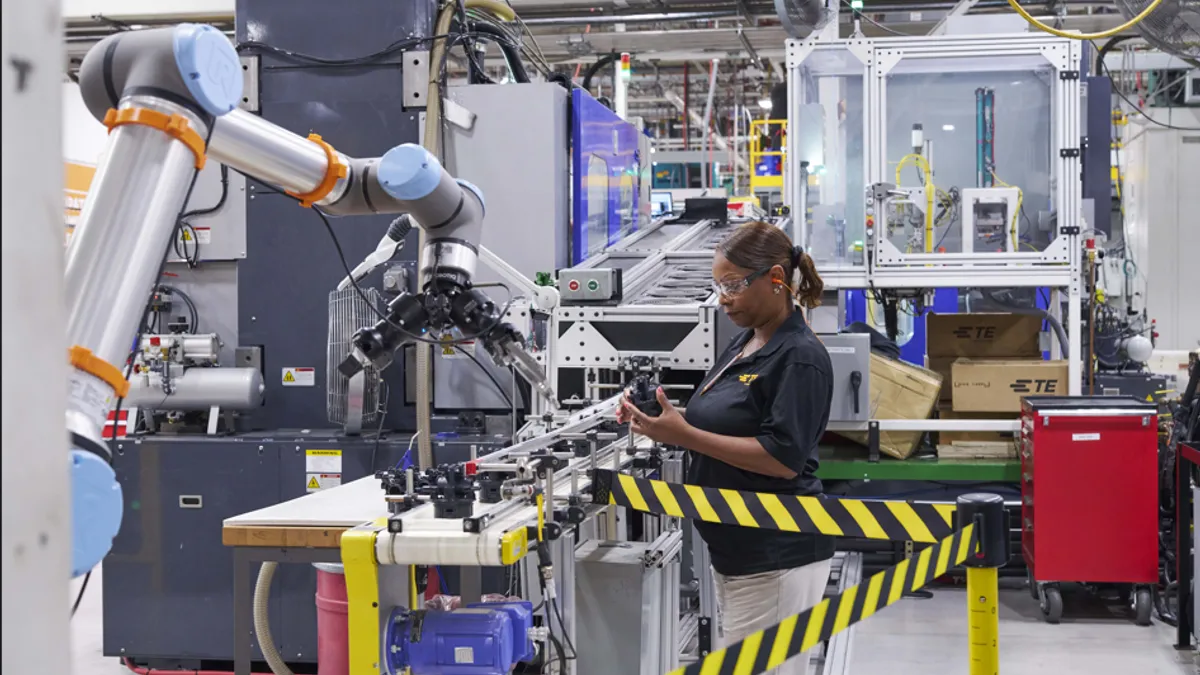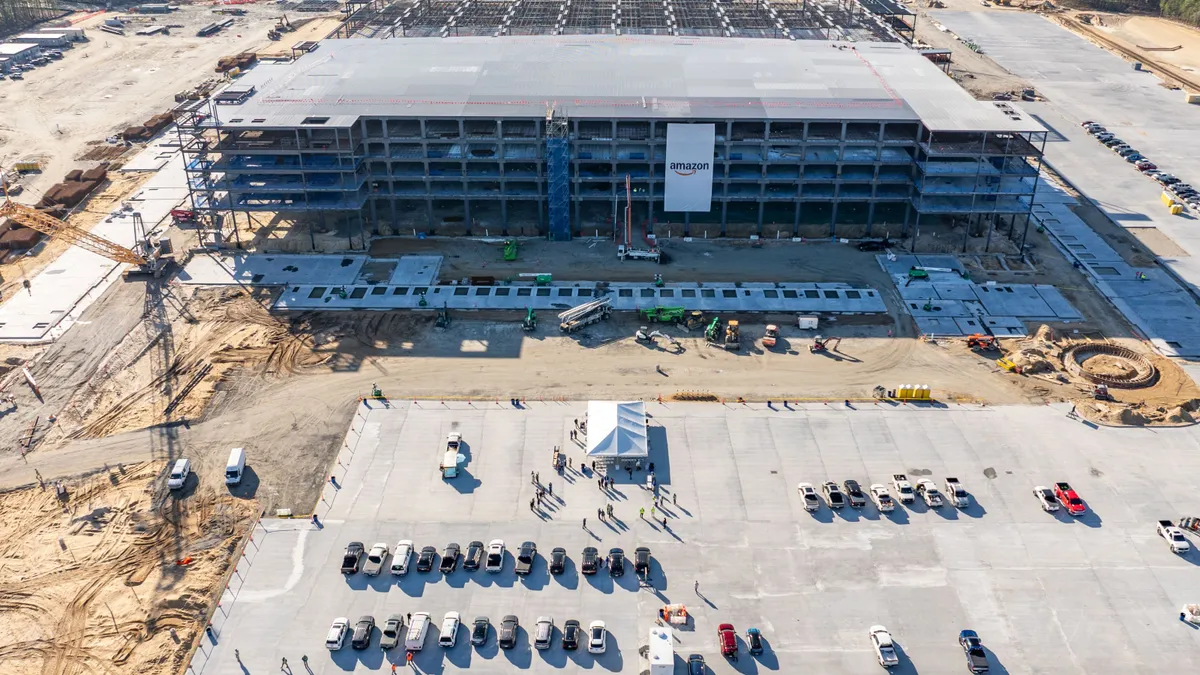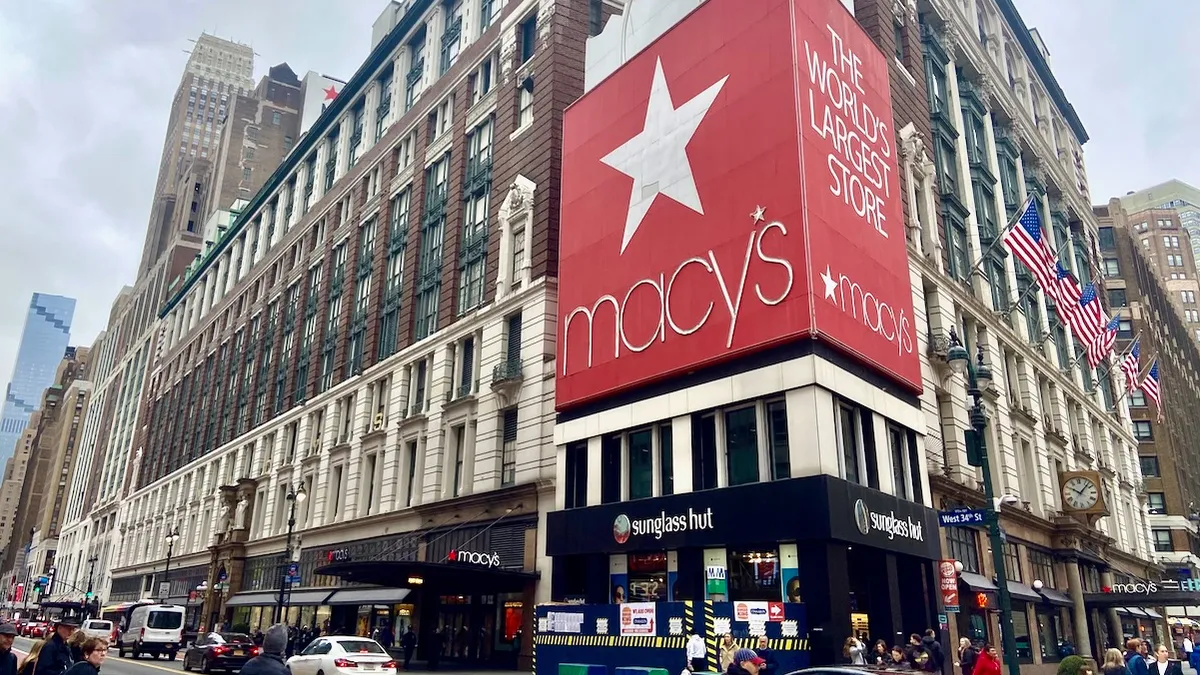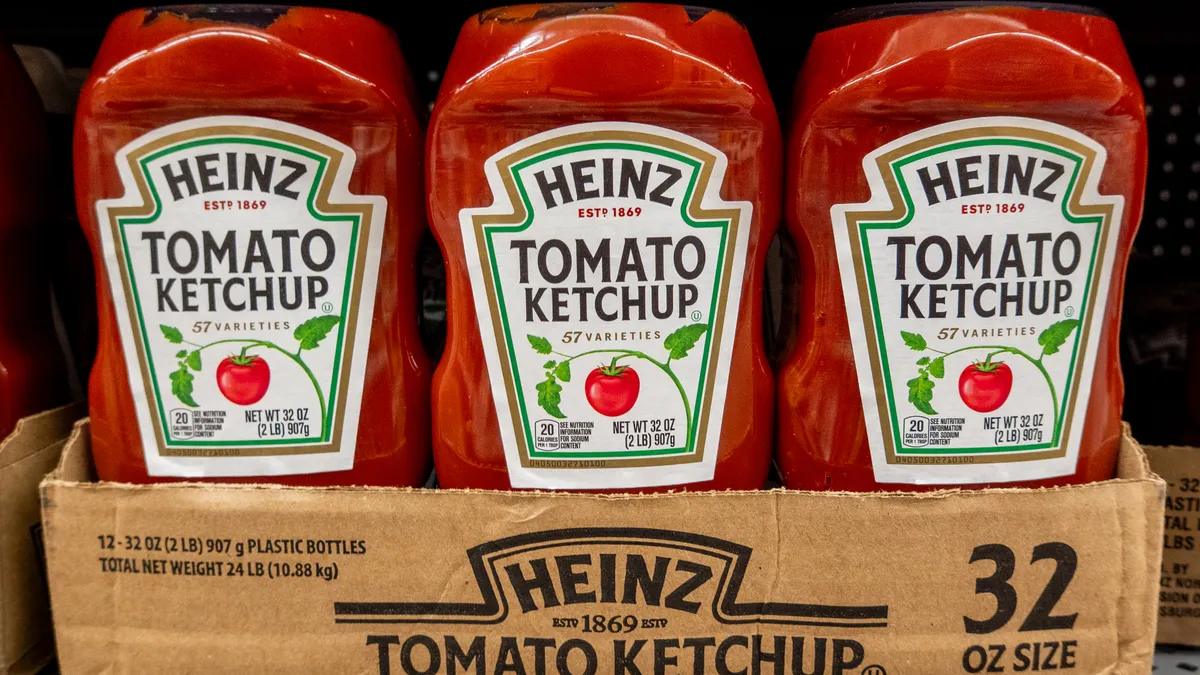Supply chains are constantly changing as new rules, technologies, resources and market trends transform operations. Here's a skim of the week's indexes, technology announcements, expansions and M&As from around the web.
In Case You Missed It
- Proposed merger between K Line, NYK and MOL was denied by U.S. maritime regulators.
- Nintendo spent over $100M in air freight costs to avoid further Switch shortages.
- UPS and FedEx are starting to compete with USPS for last-mile deliveries.
Market Snapshot
Steady economic growth throughout the quarter sprinkled productivity challenges throughout the supply chain, but workers in the manufacturing sector appear to be rising to the challenge.
The Bureau of Labor Statistics reports that manufacturing workers put in 2.4% more hours for a 2.8% rise in output throughout the quarter. The increase was mainly driven by workers in the nondurable goods sector, where output per hour rose 3.2%.
This is hardly new, but significant: The Bureau notes the last four quarters have seen a steady increase in productivity, while unit labor costs rose 4.3% last quarter compared to the same period last year. In other words, while manufacturers are paying more per hour of labor, productivity is rising too. Could talent be at play?
It may just be there's a lower supply of labor, though. Another BLS report found the unemployment rate lay steady at 4.4% in April, practically unchanged from March and 0.6% lower than the same period last year. The Federal Reserve Bank of St. Louis estimates the long-term natural rate of unemployment (where supply and demand for labor are at equilibrium) is 4.74% for the first quarter and 4.75% a year ago.

In other words, over the last year, unemployment has fallen from above to below the natural rate, signaling a shortage of labor throughout the market.
Other indicators, such as the Institute for Supply Management's Manufacturing Report on Business, support this rosy economic picture. For the past four months, the report has found steadily growing orders, production and inventory backlogs, leading to higher lead times. April's report continued this trend.
In other news, Logistics TI and Mike King & Associates released their first APAC Forwarding Index, finding that the Asia-Europe trade lanes may see greater volumes. The report notes 54% of respondents expect higher volumes in both air and ocean freight three months from now, whereas 60% said the lane saw higher volumes in March. The trend does not extend to North America, however, with less than 50% of respondents expecting similar volume growth from Asia.
Technically Speaking
Increased labor productivity usually comes with the help of new technology. As a result, various companies this week announced initiatives to boost technology development and the talent to support such processes.
Apple, for example, pledged $1 billion for a fund dedicated to creating "advanced manufacturing" jobs in the U.S. Currently, many advanced electronics components are designed in the U.S. but manufactured by high-skill engineers abroad. Shifting supply chains back to the U.S. requires investing in the talent to support modern needs.
Similarly, Amazon is opening a 60,000 square foot, 400-person capacity research facility in the U.K. to develop artificial intelligence and drone technology, CNBC reported.
Next-generation technology, it seems, requires dedicated investments — a mantra Delphi Automotive is also following. The auto supplier announced it would spin off its engine-components division in order to better serve demand for self-driving car technology.
Meanwhile, Google's self-driving vehicle unit Waymo is conducting a pilot project in Phoenix, AZ, where residents can apply to book the company's autonomous minivans via an app, for free, Industry Week reports.
In other news, SPS commerce unveiled three solution enhancements at its user conference; UPS will deploy hydrogen fuel cell trucks in California; and logistics startup accelerator Dynamo revealed its new class of innovators.
Breaking Ground
Talent, geography, incentives and future opportunities are among the key factors in warehouse site selection, CVS Senior Director of Supply Chain Transformation and Outbound Transportation Jim Della Valle said at a recent event in Kansas City, MO.
For these reasons, cities with access to various major markets by two-day shipping continue to see new developments, cementing their role as logistics hubs. Various new developments announced this week are a case in point.
Chewy.com recently opened a 663,000 square-foot wareouse in South Dallas, telling the Dallas News their two main considerations were building size and a strong labor market. The company plans to add two more warehouses — in Pennsylvania and Florida — to its network.
Not surprisingly, the company is not alone in these plans. Ace Hardware says it will open a distribution center in Lebanon Valley, less than 50 miles away from Allentown, PA, where companies incuding FedEx are also making large investments. As for Florida, Amazon will reportedly build a new 856,000 square-foot warehouse near the Orlando airport.
A warehouse boom, however, brings with it increased truck traffic, so a city incentivizing such developments should also plan for the congestion consequences. From Illinois to Texas, lacking infrastructure is reportedly stifling economic growth by decreasing productivity both in wasted time and property losses through accidents.
A new infrastructure plan, which according to Transportation Secretary Elaine Chao will be released in a few weeks (promises have been broken before), is rumored to include both private and public funding options. In any case, reports continue to show rail, road and port infrastructure projects are pivotal to continued economic growth.
Mergers & Analysis
The logistics industry is often the first indicator of major changes in the supply chain, as reliable intermediaries reinvent themselves to best suit their clients' needs, and this week may have been among the most telling weeks of deals yet.
On Monday, a trucking mega-merger was cleared early by the Federal Trade Commission, showing that, in a fragmented industry, consolidation is not anti-competitive. The next day, the Federal Maritime Commission sent shockwaves across the 7 seas by voting down the merger between Japan's big 3 container carriers: K Line, NYK and MOL. By mid-week, a flurry of acquisitions had also reached the freight forwarding sector, with UPS and Panalpina at center stage and seeking to expand their global footprint.
In further news, two distribution deals were announced this week: pharmaceutical benefits manager Express Scripts signed a new 5-year deal with distributor Amerisource Bergen; and Beacon Roofing Supply purchased CA-based Lowry's Specialty Distribution.
Each day brought a new deal, showing the dynamic nature of supply chains. Forwarders will expand globally as cross-border e-commerce surges, while carriers will attempt to consolidate to maintain capacity and financial health and distributors will seek to expand their supply services. After all, as supply chains change, so do the companies that facilitate them.






















